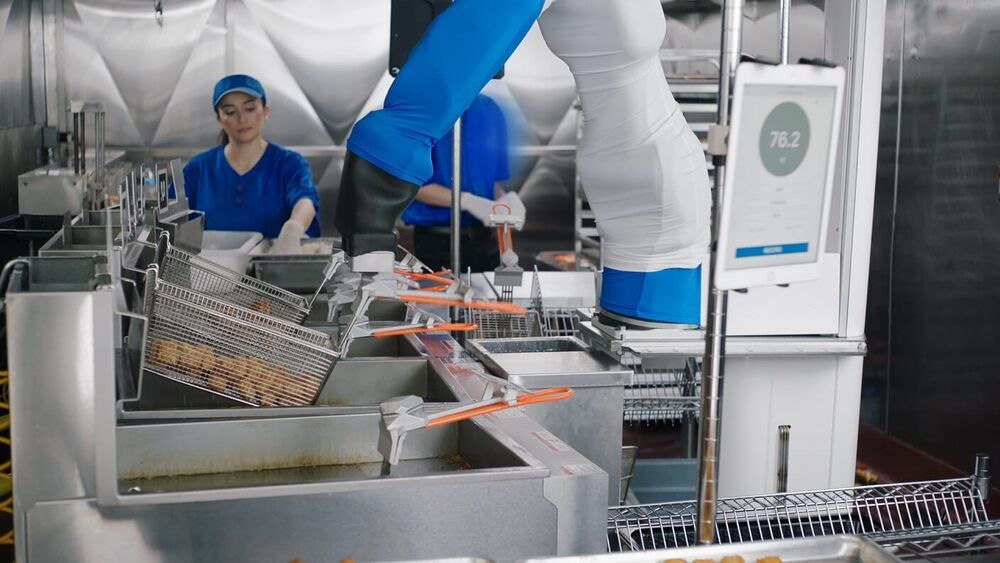Flippy’s first iteration was already pretty impressive. It used machine learning software to locate and identify objects in front of it (rather than needing to have objects lined up in specific spots), and was able to learn from experience to improve its accuracy. Sensors on its grill-facing side took in thermal and 3D data to gauge the cooking process for multiple patties at a time, and cameras allowed the robot to ‘see’ its surroundings.
A system that digitally sent tickets to the kitchen from the restaurant’s front counter kept Flippy on top of how many burgers it should be cooking at any given time. Its key tasks were pulling raw patties from a stack and placing them on the grill, tracking each burger’s cook time and temperature, and transferring cooked burgers to a plate.
The new and improved Flippy can do all this and more. It can cook 19 different foods, including chicken wings, onion rings, french fries, and even the Impossible Burger (which, as you may know, isn’t actually made of meat, and that means it’s a little trickier to grill it to perfection).
